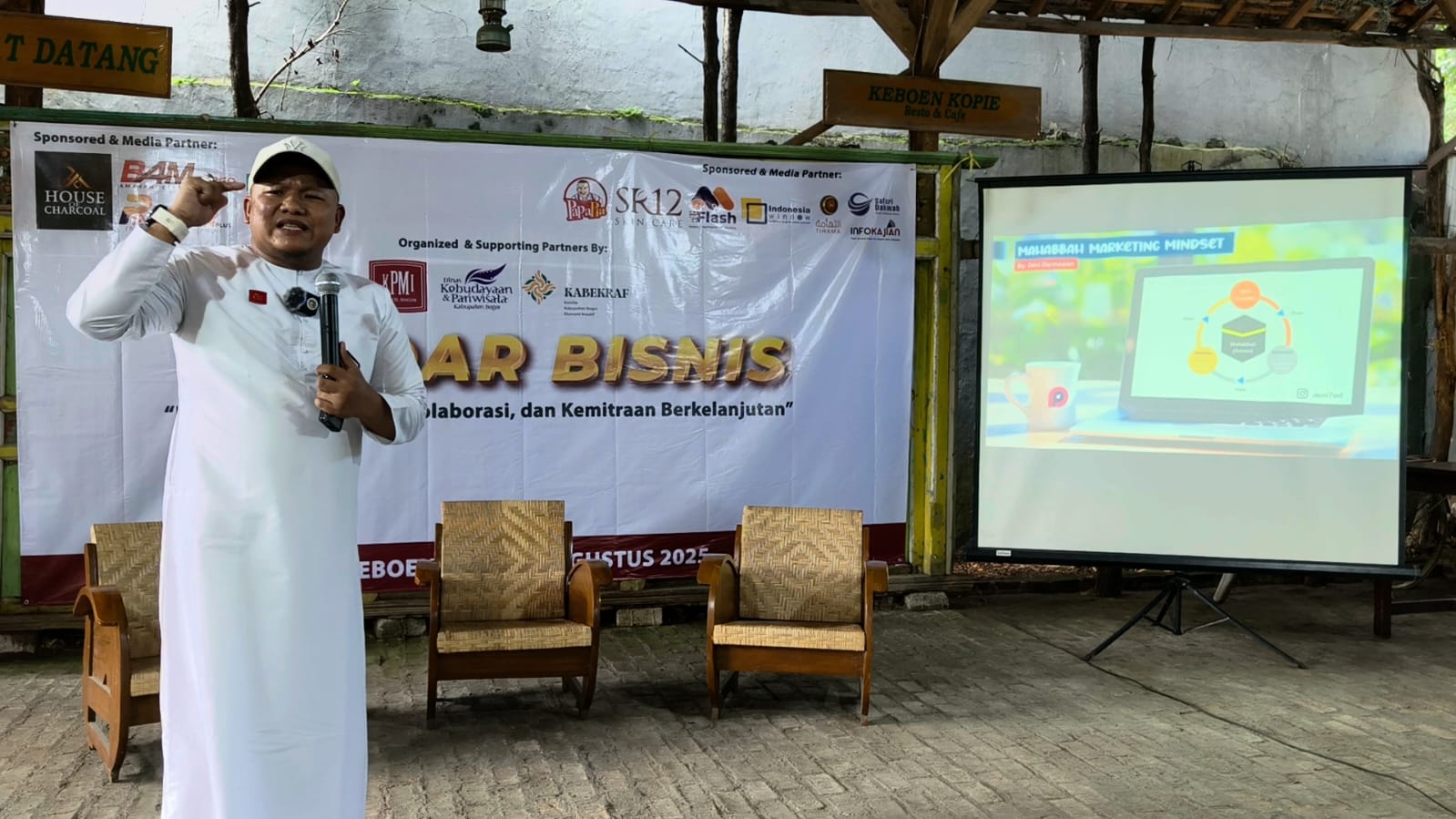Indonesia has a population of more than 280 million, with approximately 80 percent of them being Muslims, however, the number of Muslim entrepreneurs is still very small.
Bogor, West Java (Indonesia Window) –
Indonesia has a population of more than 280 million, with approximately 80 percent of them being Muslims.
"However, the number of Muslim entrepreneurs is still very small, at no more than four percent,” said Deni Darmawan, CEO and founder of the business group, Madinah Group Indonesia, while delivering a motivational presentation entitled ‘Mahabbah Marketing Mindset’ at a business gathering organized by
the Indonesian Muslim Entrepreneurs Community (KPMI)’s Bogor chapter, here, Saturday (Aug. 30).
This figure is far behind developed countries, which have 10–12 percent of the total population as entrepreneurs, Deni Darmawan pointed out.
According to him, the number of Muslim entrepreneurs in Indonesia is currently very small, contradicting history, which records Islam entering the archipelago through trade routes.
“The orientation of most Indonesians is actually inclined towards becoming civil servants or employees. Meanwhile, almost 58 percent of the national economy is controlled by large conglomerates, both in the formal and informal sectors," Deni noted, adding that as a result, Indonesia often becomes merely a target for the global economic market, and is trapped as a consumer, spectator, or even a captive market (a market that is easily controlled).
"Therefore, Muslims must be encouraged to undertake 'economic
jihad' through increased knowledge and guidance," Deni said.
Jihad comes from Arabic, meaning 'to struggle or strive hard.' In the Islamic context, jihad has a broad meaning and is not always synonymous with violence or war, but is more generally understood as a diligent and earnest effort to achieve goodness in the path of Allah (ﷻ).
On that occasion, Deni, who owns several businesses, outlined several key steps in building and strengthening a business so that it can grow, develop, and be sustainable.
"There are four things that need to be improved in the business world: product quality, customer service and satisfaction, management skills, and business ethics," he explained.
Deni presented data showing that 60 percent of customers abandon businesses or traders not because of uncompetitive product prices, but because of poor service.
"A good relationship with customers is the main key. Price is only a secondary factor," he emphasized.
To go beyond mere consumers, Deni said, Muslims have to build a business ecosystem oriented toward customer satisfaction, not just profit.
“Digital marketing needs to be utilized to reach a wider market, and every transaction must be safeguarded to avoid customer disappointment," Deni said.
The example of the Prophet Muhammad (peace be upon him), who prioritized good character and morals in business, must be used as a foundation. This way, Deni said, Muslims cannot only compete in the domestic market but also contribute to the global halal economy.
The KPMI’s Bogor business meeting was attended by dozens of Muslim entrepreneurs from Bogor and surrounding areas.
They run various business sectors, such as food and beverages, herbal and beauty products, business licensing and legality services, laptop and cell phone sales and repairs, as well as social media and mass media services.
Reporting by Indonesia Window



.jpg)
